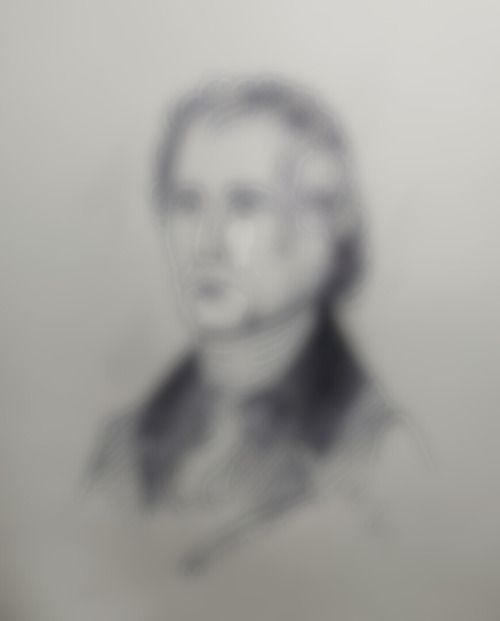Mykola Diletskyi is a composer with a question mark
Little is known about his life, which is not surprising, because it was so long ago... He was born around 1630 and died around 1690. There is only a mention of his origin in the censuses of that time: "inhabitant of the city of Kyiv". But his life was not limited to Ukraine alone. Surprisingly, even at that time people could study or work abroad and be successful in it. Mykola Dyletskyi's stay in Vilno (now Vilnius) is documented, he received there a brilliant education at the Jesuit Academy and got the academician degree, he worked as a teacher of church singing in Vilnius and other cities.
Diletskyi was an excellent theoretician, because he independently wrote an entire treatise "Musical Grammar", which is considered the first in Eastern Europe.
Mykola Diletsky'is compositions began to be studied relatively recently, in the second half of the last century. However, this is like a drop in the ocean. After all, some of his musical works are preserved in manuscript collections, some can be found in the archives of the Manuscript Institute of the Volodymyr Vernadskyi National Library in Kyiv, some works are scattered around the world, and some are lost forever.
Thanks to the Ukrainian Live project, you can listen to the music by Diletskyi, who wrote it in the 17th century, when the world and everything around was completely different, and for a while to feel that atmosphere.
Text by Maks Lunin
Translated by Diana Kolo
Portrait by Hlib Rachmanin (fictional image)
Little is known about his life, which is not surprising, because it was so long ago... He was born around 1630 and died around 1690. There is only a mention of his origin in the censuses of that time: "inhabitant of the city of Kyiv". But his life was not limited to Ukraine alone. Surprisingly, even at that time people could study or work abroad and be successful in it. Mykola Dyletskyi's stay in Vilno (now Vilnius) is documented, he received there a brilliant education at the Jesuit Academy and got the academician degree, he worked as a teacher of church singing in Vilnius and other cities.
Diletskyi was an excellent theoretician, because he independently wrote an entire treatise "Musical Grammar", which is considered the first in Eastern Europe.
Mykola Diletsky'is compositions began to be studied relatively recently, in the second half of the last century. However, this is like a drop in the ocean. After all, some of his musical works are preserved in manuscript collections, some can be found in the archives of the Manuscript Institute of the Volodymyr Vernadskyi National Library in Kyiv, some works are scattered around the world, and some are lost forever.
Thanks to the Ukrainian Live project, you can listen to the music by Diletskyi, who wrote it in the 17th century, when the world and everything around was completely different, and for a while to feel that atmosphere.
Text by Maks Lunin
Translated by Diana Kolo
Portrait by Hlib Rachmanin (fictional image)

Микола Дилецький — композитор зі знаком запитання
Про його життя відомо небагато, що й не дивно, адже це було так давно… Він народився близько 1630 року, а помер близько 1690-го. Про його походження є лише згадка в тогочасних переписах: «житель града Києва». Та Україною єдиною його життя не обмежувалося. На диво, навіть у той час люди могли навчатися чи працювати за кордоном і бути в цьому успішними. Документально підтверджено перебування Миколи Дилецького у Вільні (нині Вільнюс), де він здобув блискучу освіту в Єзуїтській академії і отримав звання академіка, працював учителем церковного співу в тому ж Вільнюсі та інших містах.
Дилецький був чудовим теоретиком, адже самостійно написав цілий трактат «Граматика мусикійська», який вважають за перший у Східній Європі.
Композиторську творчість Миколи Дилецького почали вивчати порівняно нещодавно, у другій половині минулого століття. Проте це як крапля в морі. Адже частина його музичних творів берігається у рукописних збірках, дещо можна знайти в архіві Інституту рукопису Національної бібліотеки імені Володимира Вернадського в Києві, якісь твори розкидані по світу, а щось втрачено назавжди.
Завдяки проєкту Ukrainian Live можна почути якою була музика Миколи Дилецького, що писав її у 17 столітті, коли світ і все навколо було зовсім інакшим, та на деякий час проникнутися тією атмосферою.
Текст: Макс Лунін
Портрет: Гліб Рахманін (умовне зображення)
Про його життя відомо небагато, що й не дивно, адже це було так давно… Він народився близько 1630 року, а помер близько 1690-го. Про його походження є лише згадка в тогочасних переписах: «житель града Києва». Та Україною єдиною його життя не обмежувалося. На диво, навіть у той час люди могли навчатися чи працювати за кордоном і бути в цьому успішними. Документально підтверджено перебування Миколи Дилецького у Вільні (нині Вільнюс), де він здобув блискучу освіту в Єзуїтській академії і отримав звання академіка, працював учителем церковного співу в тому ж Вільнюсі та інших містах.
Дилецький був чудовим теоретиком, адже самостійно написав цілий трактат «Граматика мусикійська», який вважають за перший у Східній Європі.
Композиторську творчість Миколи Дилецького почали вивчати порівняно нещодавно, у другій половині минулого століття. Проте це як крапля в морі. Адже частина його музичних творів берігається у рукописних збірках, дещо можна знайти в архіві Інституту рукопису Національної бібліотеки імені Володимира Вернадського в Києві, якісь твори розкидані по світу, а щось втрачено назавжди.
Завдяки проєкту Ukrainian Live можна почути якою була музика Миколи Дилецького, що писав її у 17 столітті, коли світ і все навколо було зовсім інакшим, та на деякий час проникнутися тією атмосферою.
Текст: Макс Лунін
Портрет: Гліб Рахманін (умовне зображення)
Posted in Story
